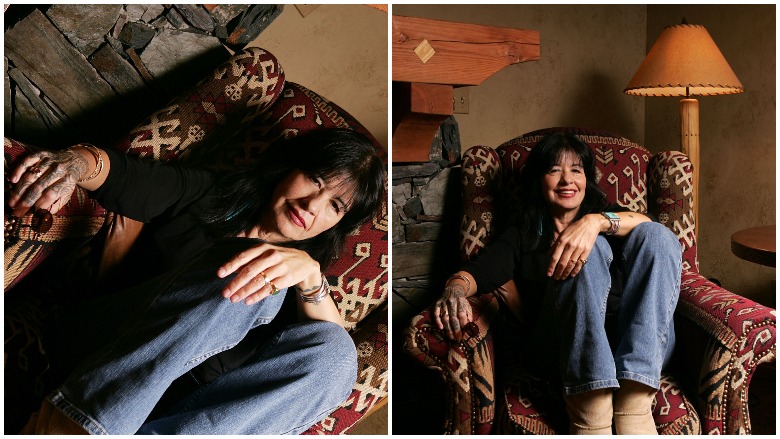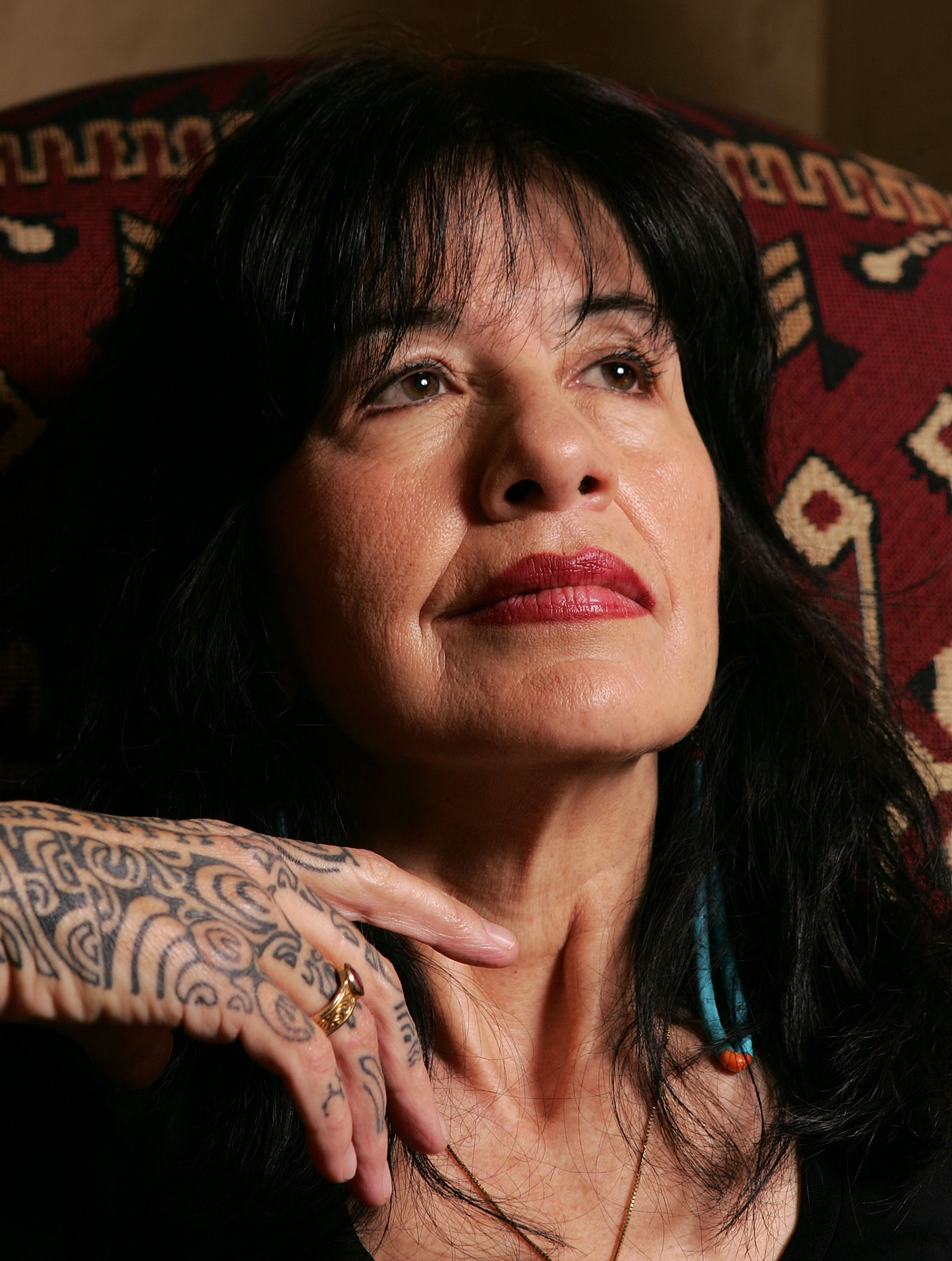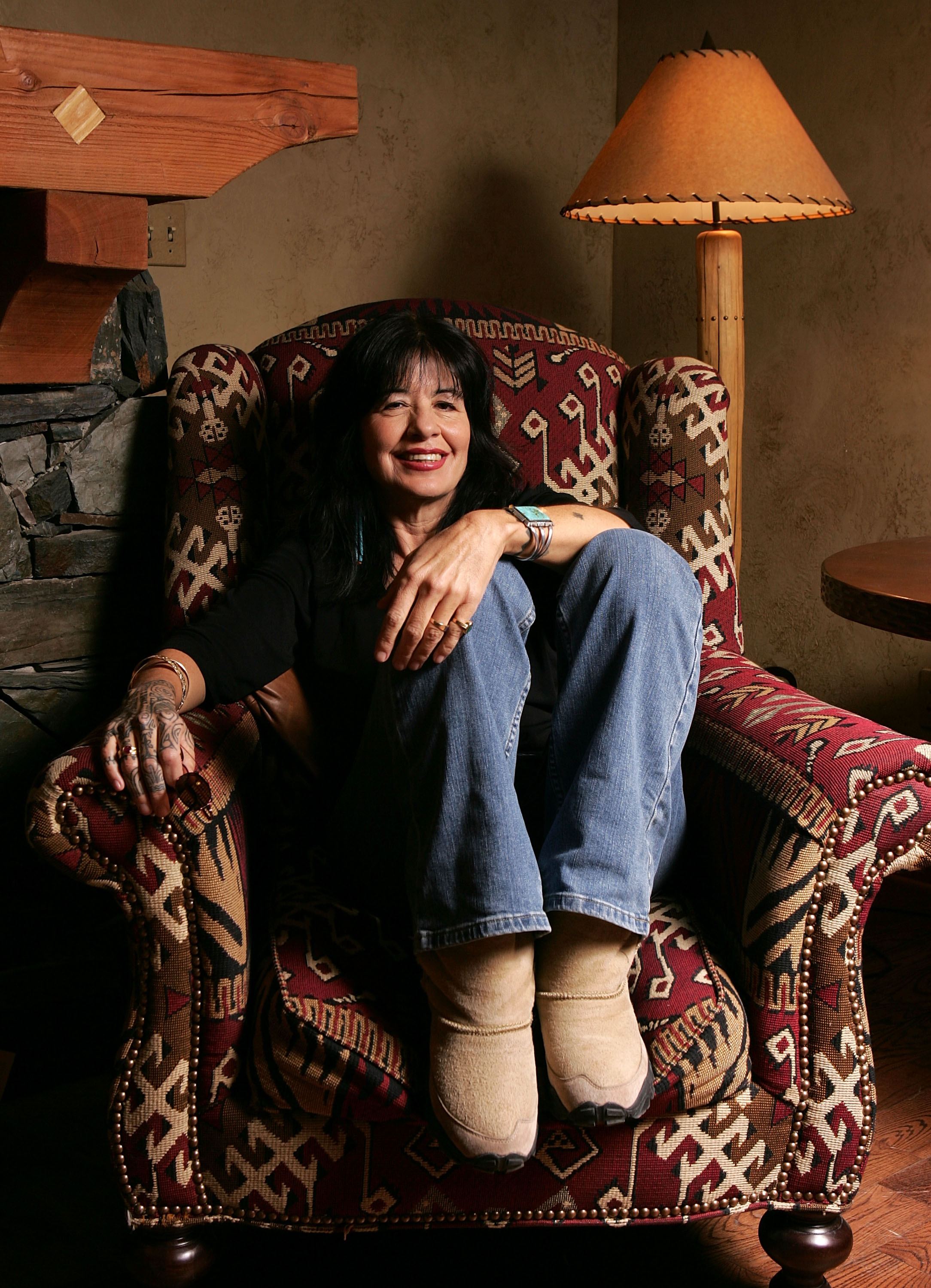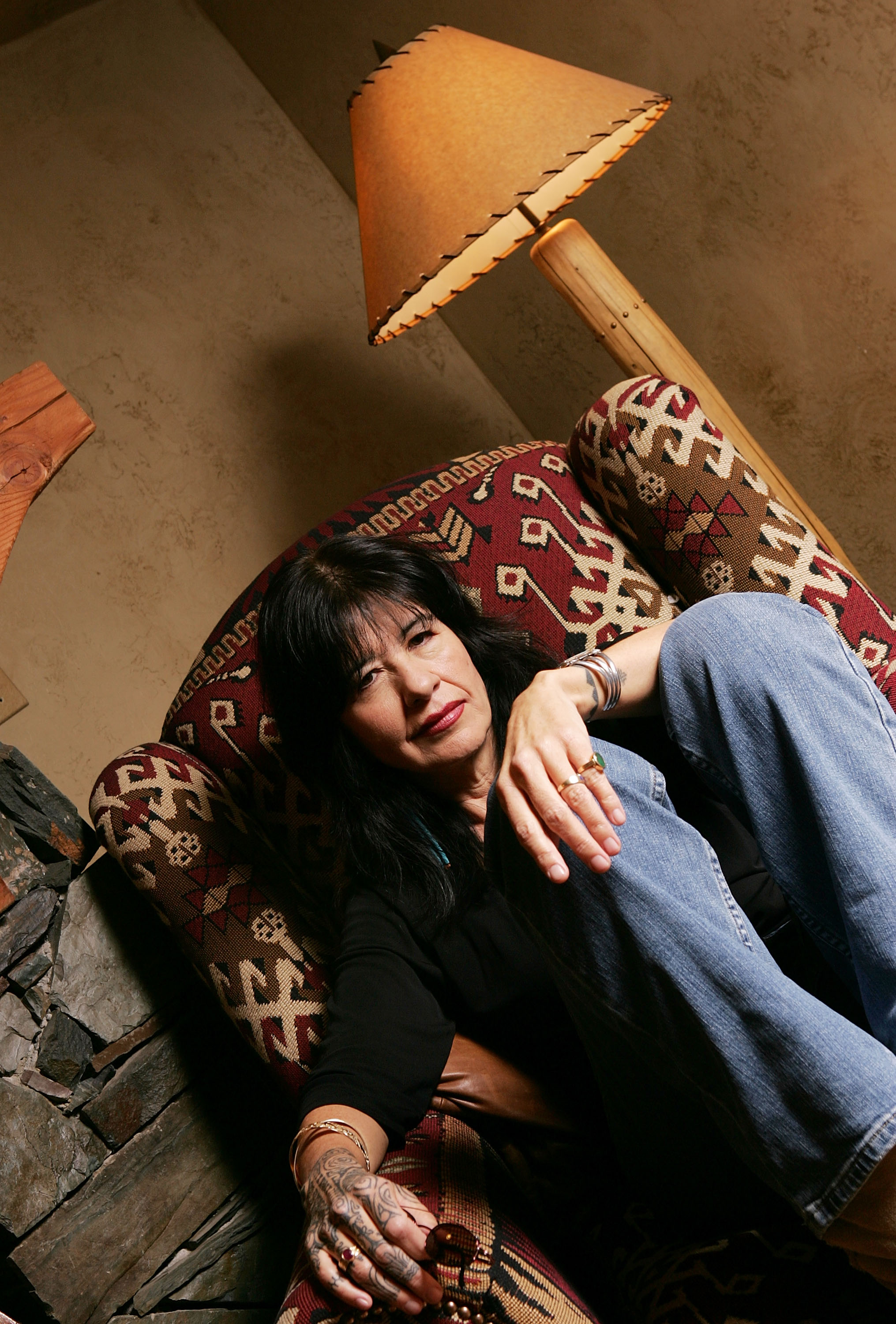
The poet and musician Joy Harjo has been named poet laureate of the United States. Harjo, a member of the Muscogee (Creek) Nation, was born in Oklahoma and lives in Tulsa. Her appointment as poet laureate, which was announced on June 19, makes her the first Native American to serve in the position. But Harjo, 68, says that as poet laureate she hopes to represent not only Native voices, but all American voices.
In an interview with NPR, Harjo said that her appointment was a great honor not only for herself, but for her ancestors and for all Native people in the United States. “It’s such an honoring for Native people in this country, when we’ve been so disappeared and disregarded,” Harjo told NPR. “And yet we’re the root cultures, over 500-something tribes and I don’t know how many at first contact. But it’s quite an honor … I bear that honor on behalf of the people and my ancestors. So that’s really exciting for me.” You can also watch Harjo discuss her appointment in an interview with the American Academy of Poets, here.
Harjo’s poems often bring together history, memory, and spirituality in order to tell her stories. “Running,” published by the New Yorker in 2018, reads, in part,
I thought I could take being a girl with her heart in her
Arms. I carried it for justice. For the rights of all Indians.
We all had that cross to bear.
Those Old Ones followed me, the quiet girl with the long dark hair,
The daughter of a warrior who wouldn’t give up.”
You can read the whole poem — and listen to audio of Harjo reading it — here. Here’s what you need to know about Joy Harjo:
1. She Is a Poet & Musician Who Tours with a Band Called Arrow Dynamics & Has Released 4 Albums of Original Music

(Getty)Joy Harjo in 2005
In addition to being a poet, Harjo is a saxophonist and a singer. She performed for many years with a band called Poetic Justice and now tours with a group called Arrow Dynamics. Harjo has released four albums containing original music. You can hear some of her music and watch her performing here. In 2009, she won a Native American Music Award for Best Female Artist of the Year.
Harjo also performs in a one-woman show, “Wings of Night Sky, Wings of Morning Light,” which debuted in 2009. The Poetry Foundation notes that she’s at work on a play, “We Were There When Jazz Was Invented.” Harjo is a founding member of the Native Arts and Cultures Foundation.
She has also taught creative writing both at the University of New Mexico and at the University of Illinois at Urbana-Champaign, Urbana.
2. She Says Her Last Name Means ‘So Brave You’re Crazy’
Harjo’s father was a Muscogee/Creek Indian and also an alcoholic, who was mostly absent from his daughter’s life. Her mother, according to the LA Review of Books, was “a pretty, mixed-blood Cherokee mother who made wrong choices when it came to men.” Harjo grew up in Tulsa, struggling with poverty and with her own multi-racial identity. As an adult, she abandoned her father’s last name and took on her paternal grandmother’s maiden name, Harjo. Harjo is a Muscogee/Creek name meaning “crazy brave,” or “reckless.”
Joy Harjo is also the author of a memoir which nods at her surname; the book, published in 2013, is titled Crazy Brave: a Memoir. The work describes Harjo’s childhood and her journey to become a poet. The book describes her relationship with her abusive stepfather; it also describes her spirituality and her rich inner life. The Los Angeles Review of Books called the memoir “Insightful…Brings one of our finest―and most complicated―poets into view…Raw and honest.”
Harjo’s first complete book of poems, “She Had Some Horses,” was first published in 1983. Her other poetry collections include The Woman Who Fell from the Sky and “How We Became Human.” Harjo is also the author of several children’s books, including “The Good Luck Cat.”
3. She Has a Son & a Daughter

Harjo posing for photos in 2005
Harjo left home when she was 16, after her abusive stepfather kicked her out of the house. She moved to Santa Fe, New Mexico and enrolled in the Institute of American Indian Arts. While there, she met Phil Wymon, a fellow student at the Institute. The two married and had a son, also named Phil. That marriage ended in divorce.
After her son was born, Harjo supported herself at a string of dead-end jobs. “I spent three years working in a hospital, cleaning rooms, working in a health spa, pumping gas in a mini-skirt in Santa Fe, all those kind of jobs. And I decided I wanted something more,” she told the LA Times.
Harjo went on to study at the University of New Mexico. She entered the university as a pre-med student but soon switched her concentration to art. Harjo also met the poet Simon Ortiz, a leading figure in the so-called Native American Renaissance. He was a mentor to her and, eventually, a romantic partner. They have a daughter together named Rainy Dawn.
4. Harjo Said She Was an ‘Insecure’ Child Who Was ‘Afraid to Speak’ & Found Her Voice as a Performer
Harjo survived an abusive childhood living in near-poverty in Tulsa, Oklahoma. Her father was an alcoholic who became abusive when he was drunk. Her mother later remarried, but Harjo’s stepfather was also abusive and violent. Harjo told the LA Times that she didn’t like to talk too much about her early childhood, a time when, she says, she was “so insecure and so shy . . . a child who was afraid to speak.”
At 16, Harjo left home and enrolled in a competitive boarding school, the Institute of American Indian Arts in Santa Fe, New Mexico. She told the LA Times that going to the school saved her life. “I was lucky to end up going to school there. In a way it saved me. I think if it hadn’t intervened, I probably wouldn’t have lived very long,” she said. “I mean, it’s hard being an adolescent anyway, but I had a lot of wars going on” at home.
Harjo said she got over her shyness when she started performing in school plays. She also found a voice as a visual artist. As an adult, Harjo performs in a one-woman show and plays music; you can see some of her performances here.
5. Harjo Says Poetry Was Her Way of Dealing with Her Fears & Inner ‘Monster’

Harjo posing for photos in 2005
In an interview with NPR back in 2012, Harjo said that as a troubled young woman, poetry was a salvation for her. She said that writing poetry gave her a voice — the voice that she needed in order to live. Harjo told NPR, “I needed to find my voice, I think, in order to live. And this came at that time when I turned around, and I was forced to turn around and look at the monster and see the monster. And this poem came out.”
After graduating from the University of New Mexico, Harjo earned a Master of Fine Arts degree in poetry at the Iowa Writers Workshop. But she says that she was always a little bit wary of the written word since, she has pointed out, the Indian tradition is oral, rather than written. Harjo mused about the oral tradition among Native Americans in an interview with the LA Times. She said, “The knowledge was kept by remembering. And that’s one of my theories about alcoholism among Indian people, that we’re basically coming out of an oral culture, where you’re taught to remember everything. And it can be hard to forget.”
She added, “There’s an irony in being a human being. There’s an irony in writing. I feel that all the time. Maybe that’s why I’ve been trying to play a lot more music. I get so frustrated with words, and their limitations.”